174 years ago today, the world’s first “Mercy” Hospital was founded in Pittsburgh, United States, by a group of Sisters of Mercy from Ireland. Mercy Hospital served the Pittsburgh region through World War I, the worldwide epidemic of Spanish influenza, the Great Depression, and World War II. One of the most compelling examples of the hospital’s service to the community occurred in 1931 when Mercy Hospital donated more than $11,545,733 worth of healthcare services in today’s money. READ about how it’s grown… (1847)
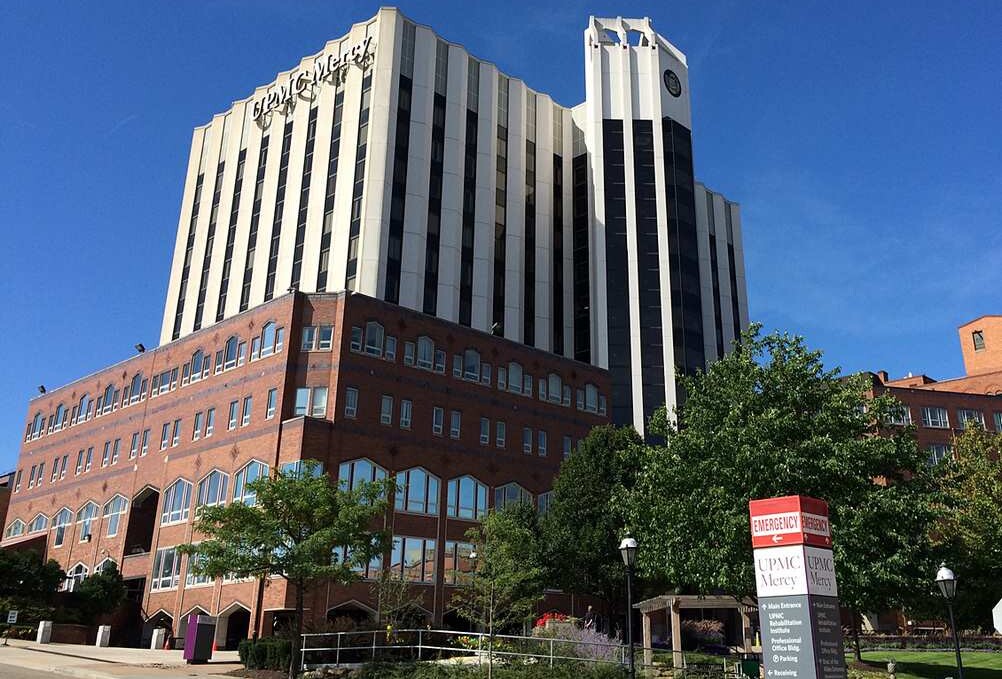
The name “Mercy” went on to grace over 30 major hospitals throughout Pennsylvania, one in New York, one in Maryland, one in Canada, one in the Philippines, and 7 in Australia. Thomas M. Carnegie was elected as the Pittsburgh location’s first board president.
Across the various PA locations, the Mercy hospitals offer every modern medical and health service, from cancer to nutrition services. They even offer gender-affirming care for people who consider themselves one of the LGBTQ(IAQ+) abbreviations, despite the fact they are a Catholic organization.
MORE Good News on this Date:
- The importation of slaves into the United States was banned (1808)
- President Abraham Lincoln signed an Emancipation Proclamation, freeing slaves in US Confederate rebel states and leading to new attitudes about slavery (1863)
- The United Nations Declaration was signed by 26 nations (1942)
- Haiti became the first independent country in the West Indies (1804); Spanish rule ended in Cuba (1899); Italy embraced a Constitution (1948)
- UN Cease-fire orders in Kashmir stopped the war between India and Pakistan (1949)
- Gaining Independence: Republic of the Sudan (1956), Cameroon (1960), Western Samoa (1962), The Sultanate of Brunei (1984)
- The feared Y2K computer bugs caused none of the problems predicted to arise with the new millennium date (2000)
- Norwegian 19-year-old Magnus Carlsen, became the youngest chess grandmaster ever to top the world rankings (2010)
251 years ago today, the hymn that would become Amazing Grace, then known as “1 Chronicles 17:16–17”, was first used to accompany a sermon led by John Newton in the town of Olney, Buckinghamshire. It is unknown if there was any music accompanying the verses; it may have been chanted by the congregation. It debuted in print in 1779 in Newton’s and Cowper’s Olney Hymns, but settled into relative obscurity in England.
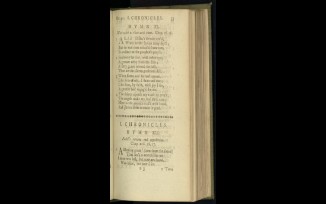
In the United States, “Amazing Grace” became a popular song used by Baptist and Methodist preachers as part of their evangelizing, especially in the American South, during the Second Great Awakening of the early 19th century.
It has been associated with more than 20 melodies, but it was in 1835 that American composer William Walker set it to the tune known as “New Britain” in a shape note format; this is the version most frequently sung today.
With the message that forgiveness and redemption are possible regardless of sins committed and that the soul can be delivered from despair through the mercy of God, “Amazing Grace” is one of the most recognizable songs in the English-speaking world. American historian Gilbert Chase writes that it is “without a doubt the most famous of all the folk hymns” and Jonathan Aitken, a Newton biographer, estimates that the song is performed about 10 million times annually.
It has had particular influence in folk music, and has become an emblematic black spiritual. Its universal message has been a significant factor in its crossover into secular music. “Amazing Grace” became newly popular during the 1960s revival of American folk music, and it has been recorded thousands of times during and since the 20th century, by everyone from Aretha Franklin to Jeff Beck. (1773)
132 years ago today, Ellis Island opened as an immigration depot in the New York City harbor. Over 40 percent of the U.S. population—100 million Americans—can trace their roots back to this epic doorway.

17 million immigrants took their first steps towards freedom and opportunity at the Ellis Island processing center. CHECK Out a sampling of the amazing names recorded at Ellis Island—some of the greatest talents in literature, entertainment, politics, and science came through these halls after traveling across the ocean in search of a better life…. (1892)
- Singer Enrico Caruso
- Olympiad Johann Weismuller
- Comedian Henry (Henny) Youngman
- Circus founders John and Mabel Ringling
- Composer – Conductors, Gustav Mahler and Arturo Toscanini
- Physicians Carl Jung and Sigmund Freud
- Filmmaker Charles Chaplin
- Conductors Leopold Stokowski and Sergei Rachmaninoff
- The ancestors of future presidents Woodrow Wilson, William H. Taft, Theodore Roosevelt, and Herbert Hoover
- Writers Joseph Conrad and Rudyard Kipling
- Irving Berlin, and the ancestors of famous songwriters George Gershwin, George M. Cohan, and Cole Porter
- Albert Einstein
Also see Books about Ellis Island, here, on Amazon.
On this day in 1959, Johnny Cash played a free concert for the inmates of San Quentin prison.
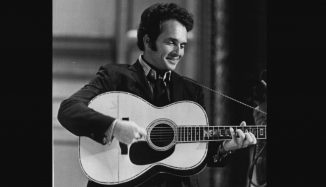
In the audience was a 19-year-old guy named Merle Haggard, who was serving a 15-year sentence for armed robbery. Haggard was released on parole the following year after joining the prison’s country band, inspired by Cash. The singer–songwriter, guitarist, and fiddler went on to score 38 number-one hits on the country charts between the 1960s and the 80s.
And, 289 years ago today, Paul Revere was born in Boston.
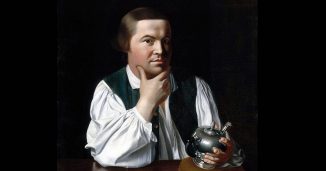
The American silversmith, engraver, and Patriot in the American Revolution was immortalized for his midnight horseback ride to alert the colonial militia to the approach of British forces before the first shots rang out in Lexington and Concord. At age 41, Paul Revere was a prosperous Boston silversmith who supported independence for the American colonies and helped organize an intelligence network to keep watch on the British military.
Following the war, Revere returned to his silversmith trade, branched out, and, in 1800, he became the first American to successfully roll copper into sheets for use as sheathing on naval vessels. (1735)
123 years ago today, the Federation of Australia was born. The Constitution of Australia came into force, uniting the 6 colonies of Queensland, New South Wales, Victoria, Tasmania, South Australia, and Western Australia under one federal government. The idea of being ‘Australian’ had been celebrated in songs and poems for decades; finally, a fireworks display in Sydney marked the political achievement with a sign that read ‘One people, one destiny.’
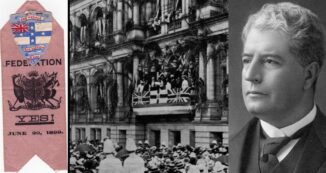
As the six colonies had become inspired by other federations that had emerged around the world, such as the U.S. and Canada, their slogan became “a nation for a continent, and a continent for a nation”.
Each of the states kept their systems of government and legislatures, but they wanted a federal government that would be responsible for matters concerning the whole nation. Championing a national railway system, Sir Henry Parkes, the instrumental and persuasive Premier of the Colony of New South Wales was known as the “Father of Federation”, though he died before its fruition.
He said in his famous 1889 Tenterfield Oration, a speech that birthed the unification of a nation: “Surely what the Americans have done by war, Australians can bring about in peace.”
Sir Edmund Barton, a judge, was also instrumental to the process, and later inaugurated as the first prime minister. Barton, who was also a delegate to the constitutional conventions, played a key role in the drafting of a national constitution. He resigned as prime minister after 3 years to become a founding member of the High Court of Australia, where he served until his death. (1901)
SHARE the Milestones, Memories, and Music…




















[…] post Good News in History, January 1 appeared first on The Good News […]
[…] The Good News Network […]
[…] Posted From: https://www.goodnewsnetwork.org/events070101/ […]
[…] post Good News in History, January 1 appeared first on Good News […]
[…] Brought to you by:- https://www.goodnewsnetwork.org/events070101/ […]
[…] post Good News in History, January 1 appeared first on Good News […]
[…] post Good News in History, January 1 appeared first on Good News […]